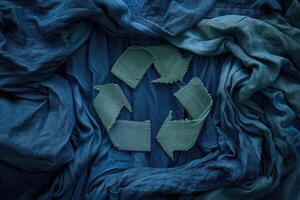A two-year program has been launched by Fashion for Good and Textile Exchange to improve supply chain transparency for textile recycling. With an emphasis on pre-consumer recovered material, the Tracing Textile Waste Project seeks to standardize data and system capabilities. Recommendations for creating and improving standards such as the Recycled Claim Standard (RCS) and the Global Recycled Standard (GRS) will come from this initiative.
The existing method for tracking down textile waste is disjointed, mostly manual, and frequently results in data that is not well defined or classified. The inability to scale up recycled fabrics is caused by this lack of transparency. To confirm the legitimacy and provenance of recycled materials, greater transparency is necessary due to mounting pressure from regulatory agencies and brands.
The development of a uniform method for categorizing and gathering information on textile waste is one of the project’s main goals. Creating a thorough glossary of terms and a minimum viable product (MVP) for the reclaimed material declaration form (RMDF) will help with this. The Reverse Resources platform will be used for real-world testing, and the project will look into better API integration to increase data flow throughout the supply chain.
With assistance from Control Union and well-known companies like Adidas, Target, Bestseller, Norrrena, and Levi Strauss & Co., the initiative is spearheaded by Fashion for Good and Textile Exchange. Usha Yarns, Recover, and Reverse Resources are important ecosystem participants.

